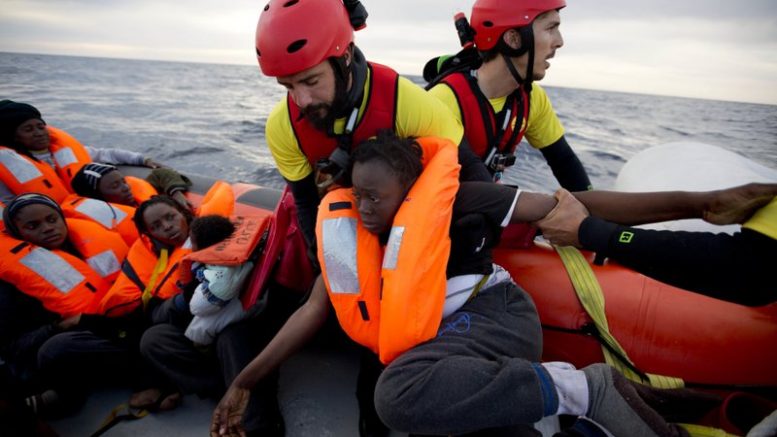VALLETTA, Malta (AP) — European Union leaders at a summit in Malta on Friday embraced a plan to stem a relentless flow of smuggled migrants through Libya toward the continent, insisting the approach will save lives.
U.N. and refugee advocates, however, decried horrible camp conditions in the largely lawless north African country and expressed fears that people could be endangered if they are returned to their homelands.
“A key element of a sustainable migration policy is to ensure effective control of our external border and stem illegal flows into the EU,” leaders of the 28 countries declared after huddling to find a strategy that could allay fears at home that the flood of migrants is alarming voters and draining resources from other projects.
Under the plan, the EU will boost training, equipment and support to Libya’s struggling coast guard and step up efforts to disrupt the smuggling routes. It will provide support to strengthen Libyan communities and make sure there are better reception conditions for migrants. Voluntary returns will be stepped up, and the EU will get more involved with neighboring nations including Algeria, Tunisia and Egypt to contain the flows.
But U.N. rights officials and organizations that aid migrants expressed concern they could become trapped in Libya or sent back to the same suffering at home they risked their lives and meager resources to escape.
EU efforts to save the lives of those trying to cross the Mediterranean are to be applauded, U.N. High Commissioner for Human Rights Zeid Ra’ad Al Hussein said. But he stressed the importance of not sending people back to countries where they may face torture, persecution or threats to their lives.
That principle, he said, is the “cornerstone of international human rights and refugee law.”
Doctors Without Borders general director Arjan Hehenkamp said Libyan detention camps where the migrants are kept are “dangerously overcrowded.”
Buoyed by an Italian-Libyan deal reached in Rome on the eve of the summit, the EU leaders are determined to succeed in both stopping more migrants from crossing into Libya’s southern desert and thwarting the smugglers from continuing to send migrants from the poorly patrolled Mediterranean coast toward Europe.
Hundreds of thousands of asylum-seekers, most of them economic migrants ineligible to remain in Europe, have reached Italy in the last few years after rescue at sea from floundering boats, but thousands have also drowned or died aboard over-packed and often unseaworthy vessels.
EU leaders want to close down that route through naval and economic assistance to the beleaguered government in Libya. Under the plan approved Friday, the EU will provide an additional 200 million euros ($215 million) for migration-related there.
Separately, British Prime Minister Theresa May told the other EU leaders in Malta that her country, where worry about migrants is also high, will provide a new of 30-million-pound (37.5 million euro) aid package for refugees and migrants in Libya, Greece, the Balkans, Sudan, Egypt and north Africa.
In a separate statement, British International Development Secretary Priti Patel said the additional support will also “help those who decide they want to return home to do so safely.”

